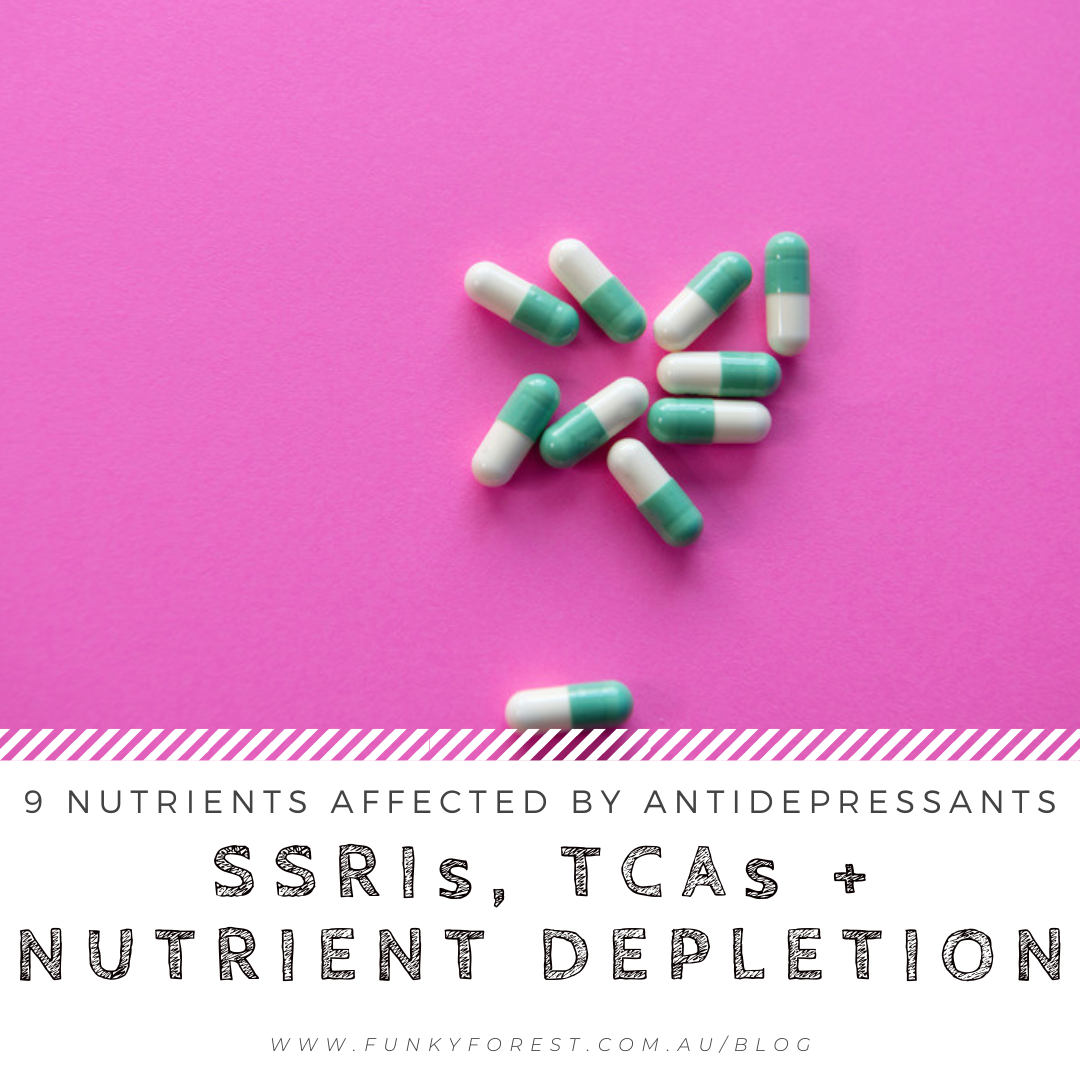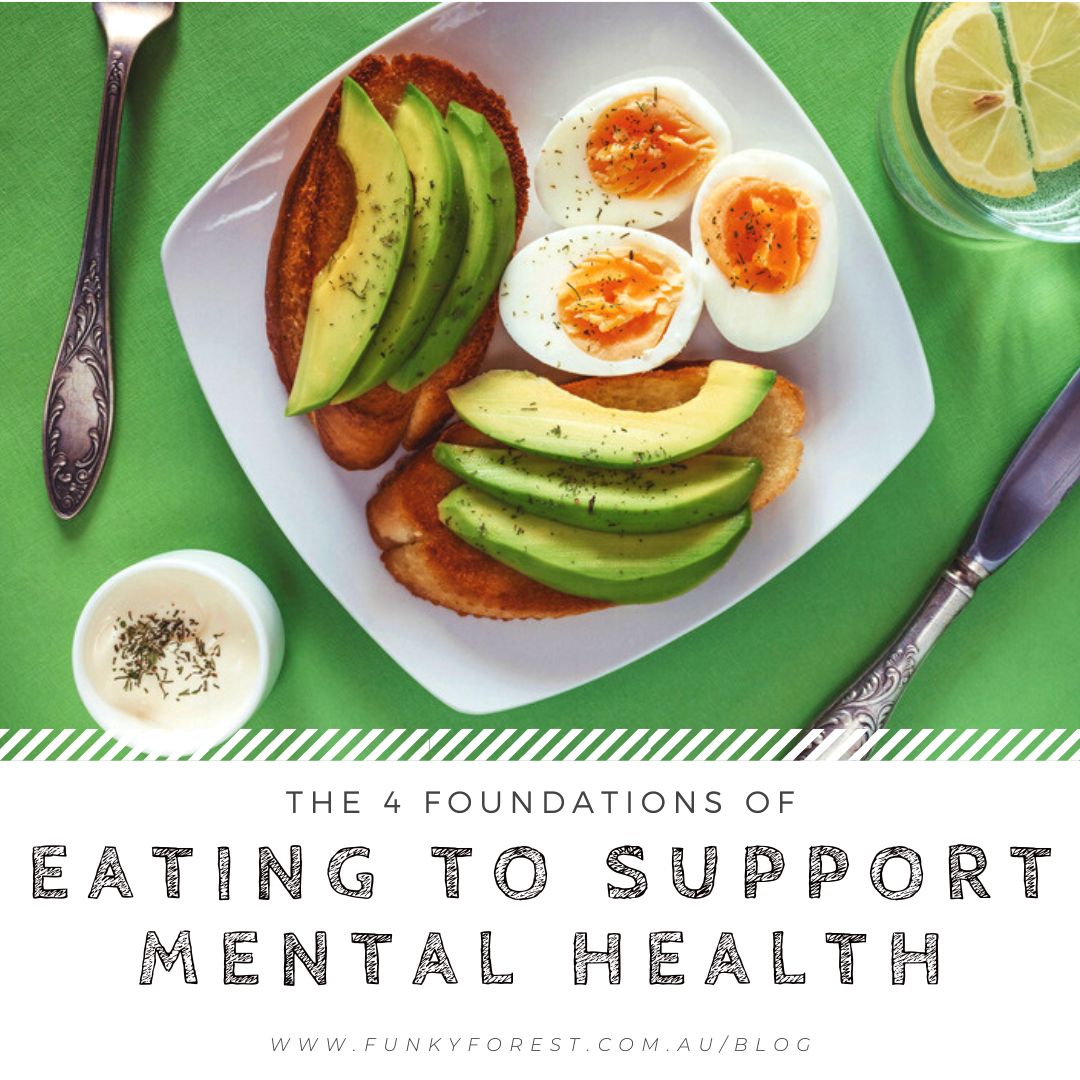Or trauma.
Or inflammation.
(If you're an integrative health practitioner like me, inflammation seems to be the scapegoat for everything these days!)
But depression isn't about any one of these things. Depression is the final common pathway of many biological, psychological, interpersonal and social problems.
Not all depression is the same. There are many different types of depression, many causes of depression, and many reasons why someone might decide to start taking antidepressants.
And many of us have decided to support ourselves this way. With 1 in 8 Australians on antidepressants, these medications continue to be prescribed at an increasing rate, especially among young people (1). In 2018, over 3 million Australians were prescribed an antidepressant, mainly Selective Serotonin Reuptake Inhibitors (SSRIs) for depression or anxiety (2).
As a dietitian and naturopath I work with many clients who have taken these medications for years, yet unfortunately have no idea that the chronic use of certain antidepressants can induce subclinical and clinical micronutrient deficiencies.
Over time (months to years), these deficiencies can cause additional symptoms and increase the side effects of the medication.
What are these side effects? In a 2016 study of 180 long-term users of antidepressants (3–15 years of use), common side effects included:
- withdrawal effects (73.5%)
- sexual problems (71.8%)
- weight gain (65.3%)
- feeling emotionally numb (64.5%)
- feeling addicted (43%)
- feeling moderate-to-severe depression despite being on antidepressants (30%) (3).
To some extent, in some individuals, these side effects will be driven by nutrient deficiencies.
There are two ways that certain vital nutrients and antidepressant medications can form a vicious cycle of deficiency:
1. Nutrient deficiencies can drive depression and anxiety
Interestingly, nutrient deficiencies can be one of the causes of depression and anxiety, two of the most common symptoms these medications are prescribed to treat.
Being deficient in vitamin D, B vitamins (such as B2, B12 and folate) and calcium can make you more prone to depression and anxiety (4). Inadequate levels of these simple, powerful nutrients can be a huge driving factor behind a person's mood disorder. This is why anyone presenting to their health care practitioner with these issues should really be assessed for nutritional deficiencies.
Unfortunately, a thorough nutritional assessment does not always happen.
To add insult to injury, having preexisting low stores of some nutrients (e.g. folate) drastically reduces the efficacy of antidepressants like SSRIs. Nutrient deficiencies can increase the time taken to respond to medication, decrease overall response rate, and increase relapse rate.
2. Antidepressants can further deplete nutrient stores
Antidepressant medications can then further deplete certain vitamins, minerals and hormones from your body. This can lead to more symptoms down the road, such as a return of the depression plus additional side effects like increased anxiety, struggle with focus, and feeling detached emotionally.
Before you accuse me of being a big pharma hating hippie, this article is not a vendetta against these medications. Au contraire. Time and time again I've seen these medications save lives and bring people back from a very deep, dark abyss without which they would have struggled immensely - or simply not made it out.
This article is not a plea for my many wonderful clients and loved ones taking these medications to discontinue their antidepressants. Not only is this out of my scope, but it's a decision that can only be instigated by the person taking the medication and the practitioner (a GP or psychiatrist) who prescribes their medication.
Antidepressant medications have a place and serve an extremely important purpose. I have no doubt about that.
And before any of you hippies accuse me of being a big pharma shill*, I fully support those clients who decide they're dissatisfied with the side effects of antidepressants and wish to reduce their dose or wean off them entirely.
The purpose of this article is to help those taking antidepressants
- to be aware of the potential nutrient deficiencies that can initiate depression and/or come with long term use, and
- to know how to detect, prevent and mitigate these deficiencies in the case that you want or need to keep taking your medication.
Knowledge is power, and in knowing more about this topic you can:
- improve the efficacy and safety of your antidepressant medication/s
- reduce the dose of antidepressants you require for mood stabilisation (always under the supervision of your GP)
- if you choose to, work collaboratively with your GP, psychiatrist and/or nutrition professional (e.g. dietitian, naturopath, nutritionist) to slowly wean off of antidepressants with minimal withdrawal symptoms.
If any of that sounds good to you, or you're a health practitioner who wishes to support those of your clients who are taking antidepressants, I invite you to read on!




































 RSS Feed
RSS Feed



